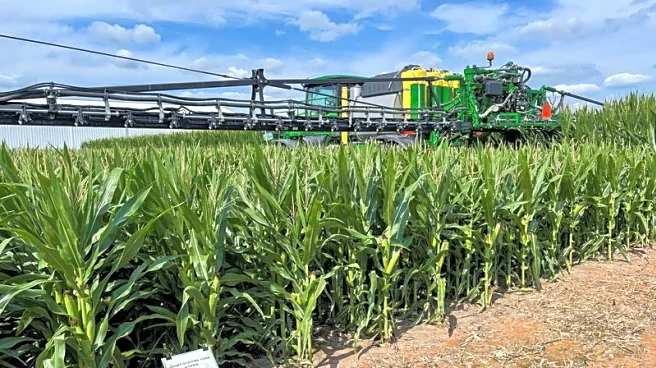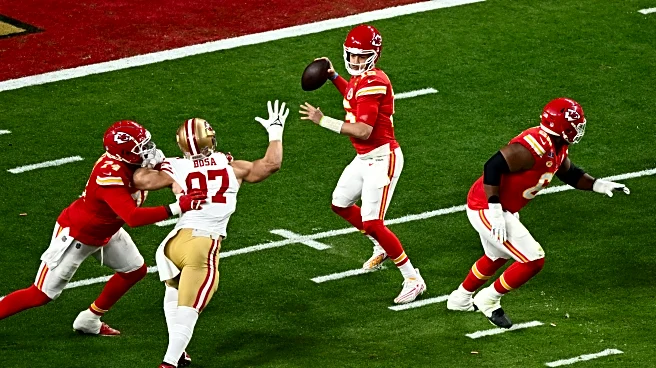What is the story about?
What's Happening?
In the upcoming 2026 Senate races, several independent candidates are leveraging their blue-collar backgrounds to appeal to voters. Dan Osborn, running in Nebraska, is highlighting his experience as an industrial mechanic, emphasizing his hands-on work ethic. Similarly, Graham Platner in Maine and Nathan Sage in Iowa are drawing on their military and working-class backgrounds to connect with voters. These candidates are positioning themselves as authentic alternatives to establishment politicians, hoping to resonate with voters who feel disconnected from traditional political figures.
Why It's Important?
The strategy of these candidates reflects a broader trend in U.S. politics where authenticity and relatability are becoming crucial for electoral success. By emphasizing their working-class roots, these candidates aim to attract voters who have traditionally supported populist figures like President Trump. This approach could potentially shift the political landscape, challenging the dominance of career politicians and appealing to a demographic that feels underrepresented. The success of these candidates could influence future campaign strategies, encouraging more politicians to adopt a similar grassroots approach.
What's Next?
As the 2026 midterms approach, these candidates will continue to build their campaigns around their blue-collar identities. They will likely focus on grassroots fundraising and community engagement to strengthen their connection with voters. The outcome of these races could signal a shift in voter preferences, potentially impacting party strategies and candidate selection in future elections. Observers will be watching closely to see if this approach can effectively counter the influence of established political figures.
Beyond the Headlines
The emphasis on blue-collar authenticity raises questions about the evolving nature of political branding. It challenges traditional notions of political leadership, suggesting that voters may prioritize personal experience and relatability over formal qualifications. This trend could lead to a reevaluation of what constitutes effective political representation, potentially broadening the scope of who can successfully run for office.

















